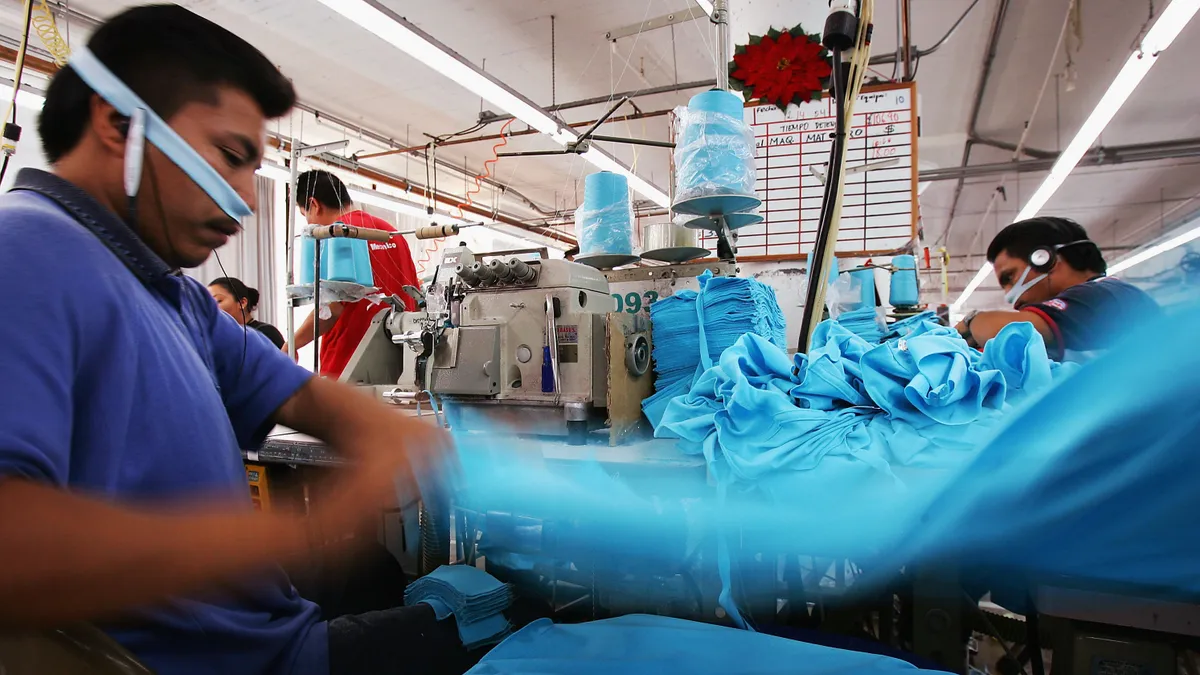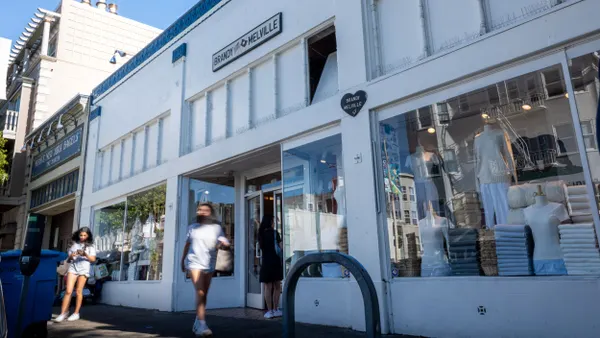Dive Brief:
- The U.S. Department of Labor found widespread labor law violations among clothing manufacturers in Southern California during the 2022 fiscal year, including one garment maker paying workers only $1.58 an hour.
- The Labor Department uncovered labor violations in 80% of its investigations, which covered data from more than 50 sewing garment contractors and manufacturers in the Southern California region. More than half of the time, employers were illegally paying workers off the books.
- The manufacturers covered by the Southern California Garment Survey produce garments for well-known retailers, including Nordstrom, Neiman Marcus, Dillard’s, Lulus and Stitch Fix, according to the news release.
Dive Insight:
Only a small sliver of clothing purchased in the U.S. is manufactured within the country’s borders, largely due to retailers looking for cheaper labor elsewhere. Given the federal minimum wage laws in the U.S., consumers seeking out clothing with a “Made in America” tag are often willing to pay a premium for that apparel.
However, the Labor Department investigations found this designation doesn’t necessarily mean that garments were produced by workers who earned minimum wage.
In fact, on average, manufacturers didn’t pay contractors high enough sewing fees to provide their workers with minimum wages. The Labor Department determined that the average sewing fee per garment was around $2.75 below what was needed to meet federal standards.
“We continue to see people who make clothes sold by some of the nation’s leading retailers working in sweatshops,” Ruben Rosalez, a Labor Department official, said in a statement. “Many people shopping for clothes in stores and online are likely unaware that the ‘Made in the USA’ merchandise they’re buying was, in fact, made by people earning far less than the U.S. law requires.”
The Labor Department found extensive examples of other violations. In half of the investigations, for instance, employers either deliberately forged their payroll records or didn’t provide them. And almost one-third of manufacturers paid their workers per clothing item they produced, a practice that became illegal in California starting in January 2022 through the Garment Worker Protection Act.
California legislators who supported the bill argued that piece-rate pay allowed companies to pay workers less than federal minimum wage. When California Gov. Gavin Newsom signed the bill, he said in a statement that it would hold “corporations accountable” and “protect marginalised low-wage workers.”
Critics of piece-work pay argue that it incentivizes manufacturers to prioritize the quick production of garments over the safety of their workers. Worker advocates are pushing U.S. federal lawmakers to ban the practice nationwide.
Interest appears to be mounting for the cause. Last year, a handful of Democratic lawmakers signed onto the Fabric Act, a bill that would have banned piece-work pay and held brands and retailers accountable for working with factories that don’t pay their employees minimum wage.
The bill didn’t make it out of committee last year despite support from advocates. The American Apparel & Footwear Association — which represents more than 1,000 brands and retailers, including Aritzia, Banana Republic, Bloomingdales and Tory Burch — was among the bill’s detractors that lobbied against it, according to data from Open Secrets.
Through the investigations, the Labor Department recovered almost $900,000 in back wages and damages for nearly 300 workers, according to the announcement.
“The findings of the Southern California Garment Survey highlight why greater outreach and stronger enforcement are needed to combat the inequities that exist in the garment and fashion industries,” Rosalez said.











